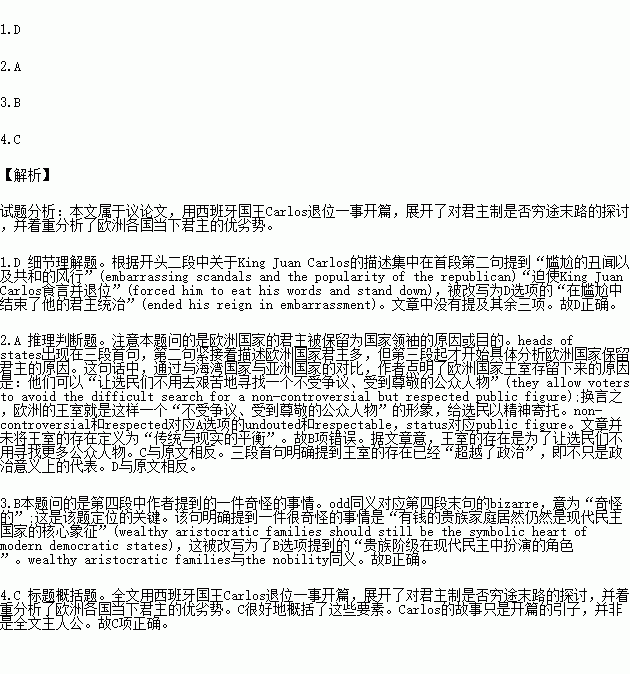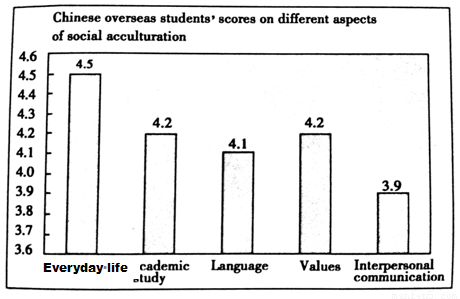题目内容
阅读下列短文,从每题所给的四个选项(A、B、C和D)中,选出最佳选项
King Juan Carlos of Spain once insisted “kings don’t give up the throne(王位), they die in their sleep.” But embarrassing scandals and the popularity of the republican left in the recent Euro-elections have forced him to eat his words and stand down. So does the Spanish crisis suggest that monarchy(君主制) is seeing its last days? Does that mean the writing is on the wall for all European royals, with their magnificent uniforms and majestic lifestyles?
The Spanish case provides arguments both for and against monarchy. When public opinion is particularly polarized, as it was following the end of the Franco regime, monarchs can rise above mere politics and symbolize a spirit of national unity.
It is this apparent transcendence(超越) of politics that explains monarchs continuing popularity as heads of state. And so, the Middle East excepted, Europe is the most monarch- filled region in the world, with 10 kingdoms (not counting Vatican City and Andorra). Most royal families have survived because they allow voters to avoid the difficult search for a non-controversial but respected public figure.
Even so, kings and queens undoubtedly have a downside. Symbolic of national unity as they claim to be, their very history and sometimes the way they behave today symbolizes outdated and indefensible privileges and inequalities. At a time when Thomas Piketty and other economists are warning of rising inequality and the increasing power of inherited wealth, it is strange that wealthy noble families should still be the symbolic heart of modern democratic(民主的)states.
The most successful monarchies try their best to abandon or hide their old noble ways. Princes and princesses have day-jobs and ride bicycles, not horses (or helicopters). Even so, these are wealthy families who party with the international 1%, and media interference makes it increasingly difficult to maintain the right image.
1.According to the first two paragraphs, King Juan Carlos of Spain
A. used to enjoy high public support
B. was unpopular among European royals
C. eased his relationship with his rivals
D. gave up his throne in embarrassment
2.Monarchs are kept as heads of state in Europe mostly
A. owing to their undoubted and respectable status
B. to achieve a balance between tradition and reality
C. to give voters more public figures to look up to
D. due to their everlasting political symbolizing
3.Which of the following is shown to be strange, according to Paragraph 4?
A. The noble families’ excessive dependence on inherited wealth
B. The role of the nobility in modern democracies
C. The simple lifestyle of the noble families
D. The nobility’s sticking to their privileges
4.Which of the following is the best title of the text?
A. Carlos, a good example of All European Monarchs
B. Europe, the most monarch-filled region in the world
C. Carlos, a Lesson for All European Monarchs
D. Europe, symbolic heart of modern democracy.
 课堂全解字词句段篇章系列答案
课堂全解字词句段篇章系列答案 步步高口算题卡系列答案
步步高口算题卡系列答案

